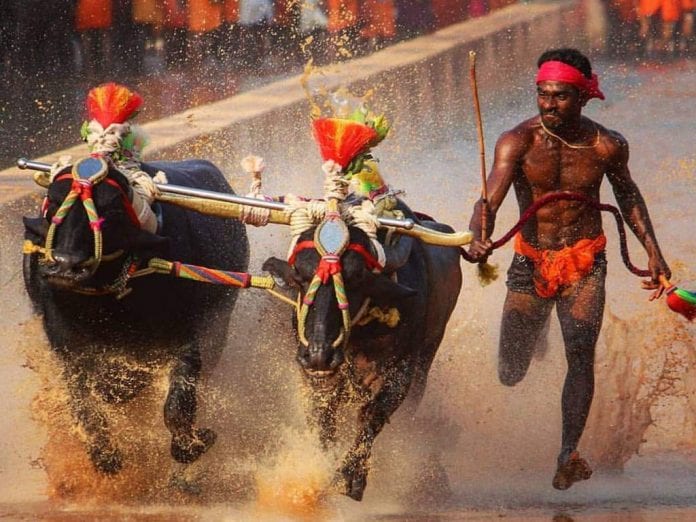
A race with buffaloes or a race with Usain Bolt – Srinivas Gowda prefers the first
Date:

Share post:

Kambala is a traditional annual buffalo race, held in the southwest state of Karnataka in India. Kambala meaning “paddy-growing mud field” in Tulu language, a track with a thick layer of mud and water where farmers race with a pair of buffaloes. On February 2, 2020, at the Aikala Kambala, Srinivas Gowda broke the record for the fastest run in Kambala clocking only 13.42 seconds in the 142.5 meters race. On completing the feat, a humble Srinivas rejected an official offer inviting him to participate in national trials. It appears, between a race with buffaloes and a race with Usain Bolt – Srinivas Gowda prefers the first!

Gowda, from Miyar Moodabidre, near Mangaluru, a farmer and part-time construction worker, has been participating in Kambala races for seven years. In the current season, he has won 29 prizes participating in 12 Kambala events. He also created this year’s record at Aikala, winning prizes in all the four categories (Negilu, Hagga, Adda halege, and Kane halage), a first in the history of Kambala. This season he has raced with three pairs of water buffaloes owned by Shakti Prasad of Mizar, Harshvardhan of Poojari, and Bada Poojari of Iruvail. As a buffalo jockey, he charges between INR 1-2 lakhs during the season to train the buffaloes for 4 weeks prior to a race and to participate with them.

Started by the Tuluva landlords, Kambala is known to exist for about 1000 years. A favorite rural sport, in the region of self-named Tullu Nadu (Dakshina Kannada, Udipi of Karnataka and Kasargod of Kerala) the race is held between November and March. Villages like Aikala, Kadri, Vandaru, Choradi, Moodabidri, Baradi beedu, etc have a calendar of competitive/non-competitive races where as many as 20,000 onlookers gather to cheer. There are currently 18 Kambala Associations or Kambala Samithis in these regions, who hold around 45 races in the season. The rural sport is highly awaited by farmers who want to drive either their own or their wealthy landlord’s buffaloes to race. While historically the winning buffaloes were rewarded with bananas and coconuts, today the winnings can be in gold or silver coins or cash.
The Animal Rights Activists
Like Jallilkattu, Kambala was banned by the Supreme Court in 2014. It also attracted strong criticism from international animal rights groups. But the Prevention of Cruelty to Animals (Karnataka Amendment) Ordinance, 2017 re-legalized the Kambala festival in Karnataka.
The Trainer
In 2018, the state started allowing Kambala races to take part again but issued several conditions – including a ban on the use of whips. Professor Kadamba, Srinivas Gowda’s teacher, said that the organizing body had responded to this, updating the sport to make it more humane and reduce any injuries to man to animal.
The Recognition
On February 15, 2020, Anand Mahindra, the Mahindra group Chairman on his Twitter handle talked about Srinivasa Gowda. He tweeted, “Just one look at his physique & you know this man is capable of extraordinary athletic feats. Now either @KirenRijiju provides him training as a 100m sprinter or we get Kambala to become an Olympic event. Either way, we want a gold medal for Srinivasa!”
The Victory – Man Power and Beastly Speed
Kambala is a huge cultural and traditional event in rural India, where farmers and their families come out to meet and greet others at the end of harvest to celebrate a good crop. Today, it is a matter of pride and prize.
The Indian buffalo racer while rejecting an official offer by Sports Authority of India inviting him to participate in national trials, where even Sports Minister Kiren Rijiju arranged for Mr. Gowda’s train ticket, he simply says, “People are comparing me to Usain Bolt. He is a world champion, I am only running in a slushy paddy field”
